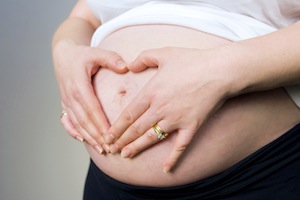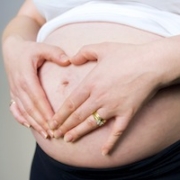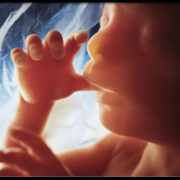A personal response to the BMA vote on abortion
 I was saddened to hear that the BMA have voted to recommend the decriminalisation of abortion. Having lost a baby at 29 weeks, I know only too well the effect that these laws have on those, who like me, refuse a termination and who lose a child.
I was saddened to hear that the BMA have voted to recommend the decriminalisation of abortion. Having lost a baby at 29 weeks, I know only too well the effect that these laws have on those, who like me, refuse a termination and who lose a child.
In the summer of 2015, at 23 weeks pregnant, I was admitted to hospital with a diagnosis of severe pre-eclampsia and a baby suffering from Intrauterine Growth Restriction. After many scans and tests, we were told in stark terms that the baby had a 1% chance of survival and that, in the doctor’s experience, within two weeks I would be so ill that they would have no choice but to intervene to save my life. Knowing that my husband and I were Christians, the doctor said, ‘for those with no faith the answer is easy, you terminate.’ It being a Friday afternoon he gave us the weekend to decide.
That weekend was the most distressing of my life. It seemed an impossible decision to make: risk my life for a baby who might not survive, or terminate our already deeply loved baby. The fact that I was being looked after in a maternity ward, surrounded by other pregnant women and new born babies, did little to help my mental or emotional wellbeing. I made a list of questions to talk to the doctor about, but the one that wouldn’t even leave my pen was, ‘and how do I live with myself?’
My husband and I decided that we would continue with the pregnancy, taking medical advice if I became dangerously ill, but also allowing the baby time to grow. We understood that I would need to remain in hospital indefinitely. A card with the words from Psalm 139 v16, ‘all the days ordained for me were written in your book before one of them came to be’, played a part in us understanding God’s view of our baby.
A midwife was able to reassure me that I was not in immediate danger and that my blood results were not overly concerning. She encouraged me to enjoy the time that I was spending with the baby now, to enjoy her kicks and her heart beat. These words helped us to appreciate the value of the life that the baby was already living.
The midwives were supportive of our decision not to terminate our baby, but some of the doctors regularly challenged us. Over the next four weeks, I would be subjected to many conversations advising me to terminate the pregnancy. It was clear that some were unhappy with the decision that we had made and were keen to change our minds. We were very aware of the risks that we were taking, but whilst I remained stable we did not want to intervene in the pregnancy. One of the doctors seemed so frustrated by it that she stated angrily one day, ‘Is it birth at any costs then?’
It became very distressing to constantly have to stand up to the doctors and to speak again about our reasons for not wanting a termination, especially as the predicted crisis just wasn’t happening. The baby grew slowly and we were beginning to have more hope.
Very sadly, at 29 weeks of my pregnancy, the midwife came to listen into the baby’s heart beat and there was none; our baby had died in the womb. I had to go through a natural delivery with our baby daughter, who we named Rachel Marie. The time that I spent carrying and nurturing her was very precious to us, and we are grateful that we do not have to live with the questions of ‘what if?’
Looking back over my time in hospital, I am concerned as to the amount of challenge there was of our refusal to terminate. As a society, there is much talk about a woman’s right to choose. However, when that choice is different from what the doctor has recommended, I have experienced the pressure that is exerted. I know that my mental health would have been severely affected had we chosen to terminate the pregnancy. It was most definitely the right choice for us and should have been respected.
Losing a child through miscarriage or stillbirth is a traumatic and devastating experience. However, society as a whole does not seem to understand just what has been lost. With conversations over when life begins, viability, and the legal cut off age for an abortion comes the view that this wasn’t quite a baby yet and therefore nothing to grieve over. Many parents are suffering in silence, feeling unable to speak about their loss and feeling that they must justify their sadness.
With the abortion laws has come a growing use of terminology in hospitals to distance ourselves from the growing child. I heard of a woman who had had a miscarriage who was taken into hospital for a procedure to deal with the ‘products of conception.’ However, for this mother, this was not just a collection of cells to be dealt with. From the minute the pregnancy test revealed the result she would have announced, ‘I am expecting a baby’, and indeed that was what her whole mind, body and spirit was reaching towards. It is so important that we acknowledge the extent of the loss, and this will only happen with a change in the way that the unborn child is referred to and protected.
I believe that Rachel’s life, short though it was, mattered. It mattered to us, her family and it mattered to God. He gives her worth and value. He saw her as she was growing. ‘My frame was not hidden from you when I was made in the secret place’ (Psalm 139 v15). I believe that it is only through acknowledging just how precious each of these growing lives are that we will be able to give value and dignity back to both the baby and to their parents












Leave a Reply
Want to join the discussion?Feel free to contribute!